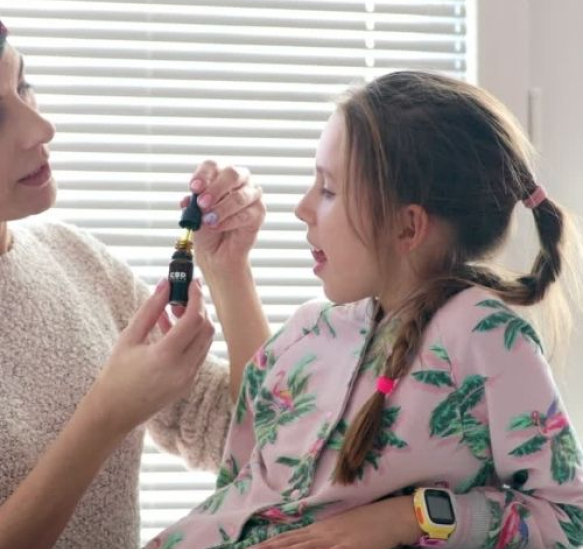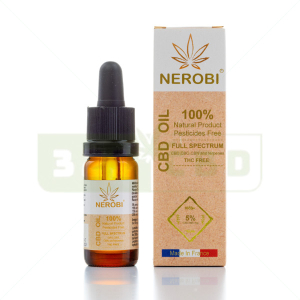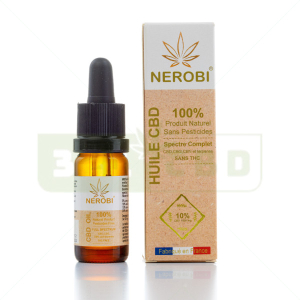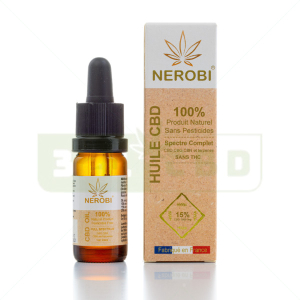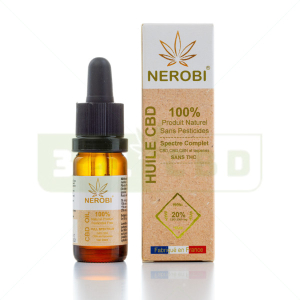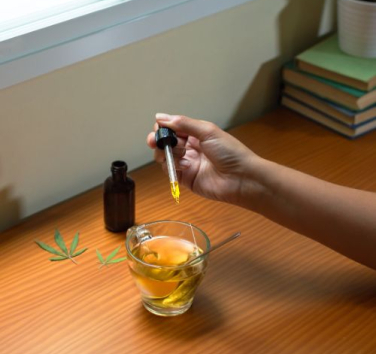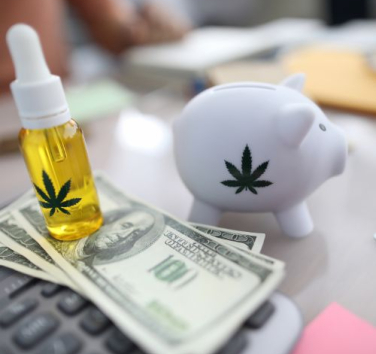Sommaire
- What is CBD?
- CBD and children: what does the law say in France?
- Why do the French consume CBD?
- CBD and children: the 321CBD disclaimer
- CBD and children: soothing and relaxing virtues
- CBD and children are also a question of sleep
- CBD and children: anti-inflammatory action
- CBD and children: the case of epilepsy
What is CBD?
Cannabidiol, or CBD, is a“cannabinoid” type substance found naturally in the hemp plant, notably the Cannabis L. Sativa and Cannabis Indica strains. We are talking about “natural” cannabinoids as opposed to synthetic molecules which are not extracted from the hemp plant but are rather manufactured in the laboratory.
Unlike tetrahydrocannabinol (THC), another natural molecule from the hemp plant, CBD does not have psychoactive effects.
It therefore does not produce a feeling of euphoria or "high", does not alter the cognitive abilities of the consumer and does not cause addiction, as explained by the Organization World Health Organization (WHO) in a press release carried out by its Committee of Experts on Drug Dependence.
The “safe” profile of CBD and the fact that it is very well tolerated by the body therefore represent the first factor that pushes many parents to wonder whether it would be wise to administer this cannabinoid to their children. But there is something else: CBD has many virtues that promote daily well-being. Before developing this point, let's first see what the law says.
CBD and children: what does the law say in France?
CBD was legalized in France and the rest of the European Union countries in December 2020 following a historic decision by the Court of Justice of the EU (CJEU) in the Kanavape case.
The CJEU had in fact ruled that CBD should not be considered a narcotic, because it does not present a proven risk to public health comparable to that of psychotropic substances or narcotics.
Consequently, it concluded that the French restrictions on the marketing of CBD-based products, when they are legally produced in France or in another Member State, were contrary to the principle of free movement of goods within of the European Union.
In short, all products containing CBD can be freely marketed and consumed in France, provided that their THC level is negligible (less than 0.3%), guaranteeing the absence of any psychotropic or euphoric effect.
Contrary to what one might believe, the law does not explicitly prohibit the use of CBD for children, but health professionals formally advise against the consumption of cannabidiol and any type of cannabinoids in minors ( and pregnant women). Here is our position at 321CBD: you should never give CBD to your child, with one exception, namely the prescription and supervision of the attending physician.
Indeed, CBD is one of the “new molecules” to enter the pharmacopoeia among pediatricians for a series of applications, such as persistent sleep disorders, chronic stress, anxiety, inflammatory pathologies of the skin and digestive system as well as certain forms of epilepsy.

Why do the French consume CBD?
According to figures from the Interprofession of Hemp Trades (Interchanvre), taken up by the very serious media LSA Conso, France has nearly 7 million regular or occasional consumers of CBD products.
They favor both historical and classic formats like flowers, oils and CBD capsules, but also more fun and practical packaging like herbal teas, foods and cannabidiol treats. But why are the French so attached to this cannabinoid which was only legalized in France from 2021?
As a natural non-psychotropic cannabinoid, CBD concentrates all the benefits of hemp without the psychotropic effect, which remains its main disadvantage.
By interacting with the endocannabinoid system (ECS) of the human body (but also in mammals), CBD regulates a series of physiological functions such as mood, appetite, sleep, the immune system and the inflammatory response .
CBD and children: the 321CBD disclaimer
In the rest of the article, we expand on the potential benefits of CBD for children for informational purposes only. They should under no circumstances encourage parents to administer CBD to their children on their own initiative.
CBD may present risks in young people, and its use should ALWAYS be conditioned by the prescription and supervision of a qualified doctor.
The decision to use CBD as a treatment for a child must be based on a medical evaluation and carried out within a legal and safe framework. We remind parents of the importance of scrupulously following the advice of their treating physician and never substituting or initiating treatment without prior medical consultation, even if CBD as a substance is not a medicine.
CBD and children: soothing and relaxing virtues
By increasing levels of anandamide, a neurotransmitter that promotes well-being and emotional balance, CBD helps reduce stress and anxiety levels to promote a state of relaxation and serenity.
The benefit of this soothing property manifests itself in two ways in the consumer's daily life:
- Relief from chronic stress, by consuming CBD daily in the morning;
- Soothing of people who suffer from acute stress in the face of certain triggering events (public speaking, work overload, burnout, etc.).
|
The number to know |
|
According to a study carried out by the IFOP, 95% of French people aged 18 and over are stressed or anxious, and one in two French people say they are “particularly stressed” on a daily basis. Women (60%) are much more affected than men (38%). |
For children, CBD can sometimes be prescribed by a healthcare professional on a very ad hoc basis to manage certain stressful or anxious episodes without resorting to heavy medications.
Some children may experience generalized anxiety that affects their ability to concentrate at school or interact socially, which can harm their development and fulfillment. Some healthcare professionals may prescribe CBD oil at very low doses to limit feelings of anxiety and promote concentration and attention. This approach, however, remains very marginal.
As with adults, children can also experience acute stress during stressful events such as exam preparation periods or major changes in their environment such as moving or changing schools. CBD can be considered by the healthcare professional to better manage these periods of intense stress.
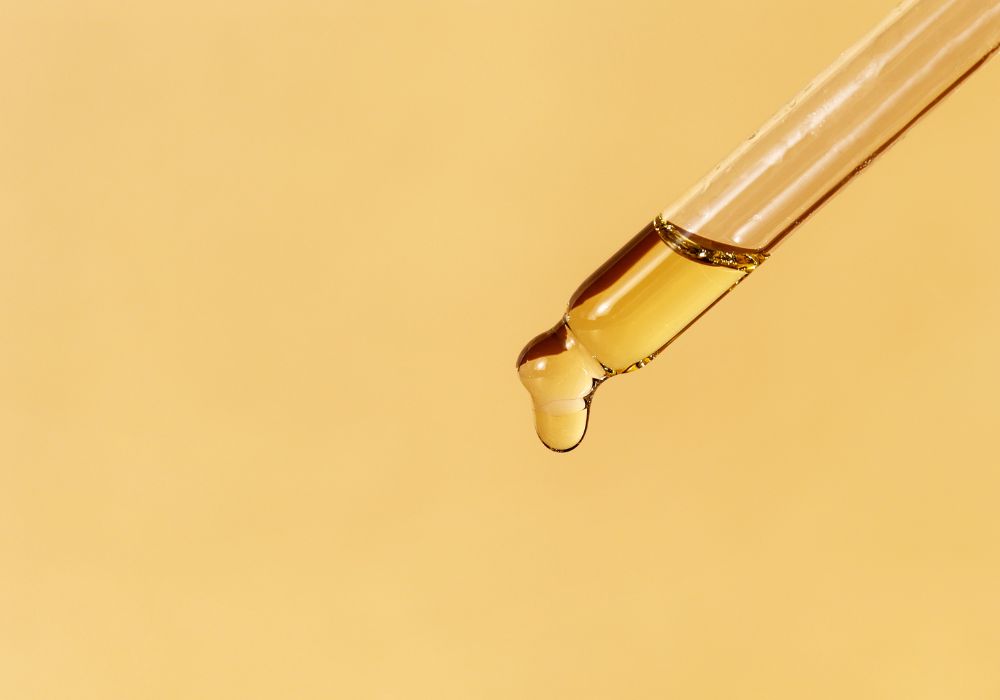
CBD and children are also a question of sleep
The soothing and relaxing properties of CBD also make it an excellent natural sleep aid. More and more physiotherapists and somnologists are prescribing THC-free CBD products to their patients to overcome insomnia and symptoms associated with paradoxical sleep disorders, notably nocturnal verbalization (the fact talking in one's sleep), unexpected awakenings in the middle of the night and muscle spasms and involuntary movements.
You should know that the strains of hemp from which cannabidiol comes play a role in its virtues:
- CBD from the Cannabis L. Sativa strain will be more energizing and stimulating. It will be used above all to boost concentration, energy and motivation during the day;
- CBD from the Cannabis Indica strain is calming, relaxing and slightly sedative. It is this type of cannabinoid that should therefore be favored to get sleep.
|
The number to know |
|
In 50 years, the French have lost nearly an hour and a half of sleep per night according to figures from the Public Health France barometer. Adults now sleep 6 hours and 32 minutes each night, far less than the 7 to 8 hours recommended by health professionals. According to another study carried out by the IFOP, 70% of French people say they have “a sleeping problem”. |
For children, CBD can contribute very occasionally to rebalancing the sleep cycle following a disturbance, always under the supervision of a health professional. Healthy, restorative sleep is crucial for children because it directly influences their physical growth, learning ability, memory and general health.
In children who have difficulty falling asleep or those who experience frequent nocturnal awakenings, CBD can be considered at very low doses to regulate the sleep-wake cycle and restore the balance of the circadian rhythm. It is particularly useful for children who suffer from sleep disorders such as insomnia or restless legs syndrome (RLS);
Anxiety can often disrupt children's sleep. CBD may exert a calming and soothing effect to allow anxious children to fall asleep more easily and maintain deep sleep for longer.
For children who suffer from conditions such as epilepsy or autism, which can often disrupt sleep, CBD may be wise to improve sleep quality by reducing the frequency of waking up.
By contributing to the quality of sleep, CBD can promote children's ability to concentrate at school, stabilize their mood and improve physical and mental health, as sleep significantly affects the regeneration and repair of cells. Again, CBD must be prescribed by a healthcare professional and administered under their supervision.
CBD and children: anti-inflammatory action
CBD exerts an anti-inflammatory action by interacting with several cellular and molecular mechanisms that regulate inflammation, starting with the inhibition of cytokine production.
These proteins released by cells of the immune system are responsible for the initiation and maintenance of inflammation. By limiting the release of these cytokines, CBD therefore attenuates excessive inflammatory responses, particularly common in children.
CBD also influences the activity of immune cells themselves. For example, it can modulate the behavior of macrophages and T cells involved in inflammatory responses to reduce reactions.
Finally, CBD may increase the production of anti-inflammatory compounds in the body, including certain eicosanoids. These signaling molecules promote the resorption of inflammation and accelerate healing.
The inflammatory response can be particularly intense, even exaggerated, in children, especially if they have an atopic condition (more exposed to allergies). The anti-inflammatory action can therefore be particularly interesting, always under the control of the treating physician:
- In children with asthma, which is a disease characterized by chronic inflammation of the airways, CBD may reduce inflammation and improve respiratory function;
- Atopic dermatitis, or eczema, is an inflammatory skin pathology very common in children. It causes inflammation of the skin including redness, itching and irritation. CBD can soothe these symptoms by modulating the skin's inflammatory response;
- Inflammatory bowel diseases (such as Crohn's disease and ulcerative colitis) cause chronic inflammation of the gastrointestinal tract. CBD, but also CBN and CBG, two other non-psychotropic cannabinoids, can reduce the symptoms of these pathologies and improve the quality of life of affected children;
- In autoimmune diseases such as lupus, the immune system mistakenly attacks healthy tissue and thus causes inflammation. CBD again modulates the immune response to limit systemic inflammation.
CBD and children: the case of epilepsy
Professor Orrin Devinsky, director of the NYU Comprehensive Epilepsy Center and the Institute of Neurology and Neurosurgery, is a leading researcher specializing in neuropathies resistant to conventional treatments.
According to the World Health Organization, around 70% of people with epilepsy do not have access to adequate treatment, either due to the high cost of medications or because they suffer from pharmacological forms. resistant to the disease. The search for new molecules is therefore essential to improve their quality of life.
Thanks to its action on the receptors of the endocannabinoid system and its anti-inflammatory properties, CBD is a promising candidate to enrich the pharmacopoeia against epilepsy, particularly for children.
In 2018, Professor Devinsky's teams conducted two benchmark studies, both randomized and double-blind, to evaluate the effectiveness of 10% CBD oil in the treatment of epilepsy in children. :
- The first study showed that CBD oil 10 could reduce the frequency of atonic seizures in 42% of children with Lennox-Gastaut epileptic syndrome;
- The second study showed that the same dosage of CBD halved the number of seizures in 43% of children suffering from Dravet epilepsy syndrome.
In both cases, the side effects observed were mild and temporary, mainly drowsiness and minor digestive problems. These encouraging results suggest that CBD could be a viable option to improve the quality of life of children affected by these severe forms of epilepsy.

